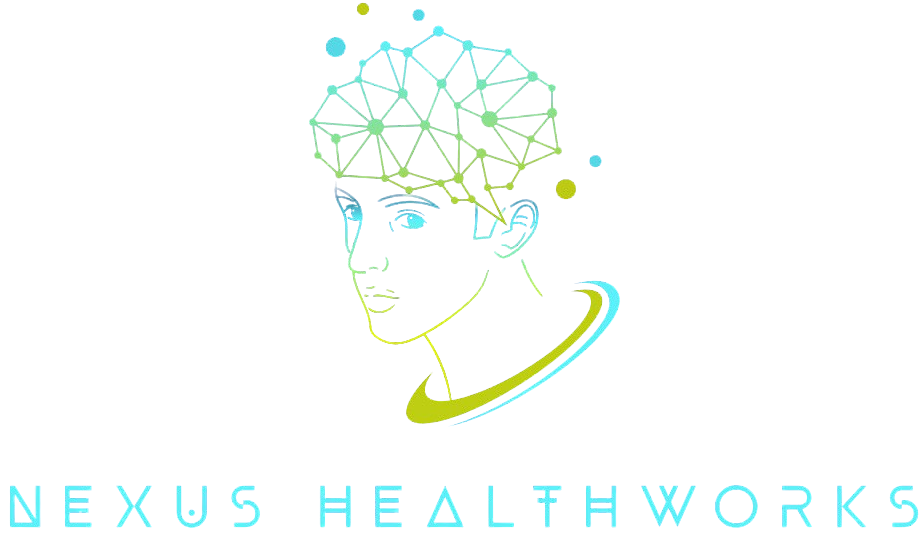Psychotic disorders are complex mental health conditions that disrupt an individual’s ability to perceive reality accurately. These disorders often involve hallucinations, delusions, and disorganized thinking, profoundly affecting daily life and relationships. Psychotic disorders encompass conditions like schizophrenia, schizoaffective disorder, brief psychotic disorder, and others.
Nexus Healthworks NP in Psychiatry P.C. provides specialized care for psychotic disorders in children aged six and older, adolescents, and adults. With an integrative approach combining psychotherapy, medication management, and personalized care, we are dedicated to helping patients regain stability and balance in their lives.
Symptoms of Psychotic Disorders
Early identification of psychotic disorders is essential for effective treatment. Common symptoms include:
- Hallucinations: Experiencing sights, sounds, or sensations that are not present.
- Delusions: Holding strong, false beliefs that are detached from reality.
- Disorganized Thinking: Difficulty organizing thoughts or communicating coherently.
- Social Withdrawal: Avoiding social interactions and relationships.
- Mood Disturbances: Experiencing extreme emotional highs or lows.
- Trouble with Daily Responsibilities: Struggling to manage work, school, or home tasks.
- Catatonia or Agitation: Periods of inactivity or excessive, unfocused activity.
These symptoms can vary in intensity and duration, but they require professional evaluation and care to ensure effective management.
Why Seeking Treatment for Psychotic Disorders Matters
Psychotic disorders can disrupt nearly every aspect of life, from personal relationships to professional aspirations. Addressing these conditions promptly is essential because:
- Psychotic episodes can lead to severe disruptions in education, work, and social interactions, creating barriers to a fulfilling life.
- Untreated psychotic disorders may result in co-occurring mental health issues such as anxiety, depression, or substance abuse.
- These disorders can increase the risk of self-harm or harm to others, underscoring the urgency of seeking professional intervention.
- Early diagnosis and treatment can prevent long-term impacts on brain function and improve overall outcomes.
- Professional care enables individuals to better understand and manage their condition, providing tools for navigating daily challenges.
- Comprehensive treatment approaches can significantly enhance quality of life, enabling individuals to regain stability and purpose.
A Step-by-Step Approach to Treatment
At Nexus Healthworks NP in Psychiatry P.C., we provide comprehensive and individualized treatment plans for psychotic disorders, ensuring every patient receives the care they need.
Steps in the Treatment Process
- Initial Evaluation and Diagnosis: The journey begins with a detailed assessment of the patient’s symptoms, medical history, and lifestyle to determine the most accurate diagnosis.
- Personalized Treatment Plan Development: We design a tailored care plan that may include psychotherapy, medication management, and lifestyle adjustments based on the patient’s unique needs.
- Psychotherapy for Emotional and Cognitive Support: Brief psychotherapy, including cognitive-behavioral therapy (CBT), helps patients address distorted thoughts and build effective coping strategies.
- Medication Management: If necessary, antipsychotic medications are prescribed and monitored to manage symptoms and ensure safety and efficacy.
- Family Involvement and Support: For younger patients, family education and involvement can enhance understanding and create a supportive recovery environment.
- Ongoing Monitoring and Adjustments: Regular follow-ups ensure that treatment remains effective and adapts to the patient’s progress and changing needs.
Preventing Relapse and Maintaining Stability
While psychotic disorders are challenging, proactive steps can help prevent relapse and maintain stability. Key strategies include:
- Early Intervention: Addressing symptoms promptly reduces the risk of severe episodes.
- Medication Adherence: Following prescribed medication regimens is critical to managing symptoms and preventing recurrence.
- Building Strong Support Networks: Engaging with family, friends, or support groups provides essential emotional reinforcement.
- Stress Management Techniques: Practices such as mindfulness, relaxation exercises, and regular physical activity reduce triggers.
- Consistent Therapy Engagement: Ongoing therapy sessions help patients navigate challenges and strengthen coping mechanisms.
- Avoiding Substance Use: Refraining from alcohol and drugs minimizes the risk of exacerbating symptoms.
A Hopeful Outlook for Patients
With advances in mental health care, individuals with psychotic disorders can achieve significant improvements in their quality of life. By actively participating in treatment, patients often experience fewer and less severe psychotic episodes, allowing them to regain a sense of control over their lives. Many find managing responsibilities and maintaining independence easier, fostering a renewed sense of stability. Treatment also enhances relationships with family and friends through better communication and understanding, creating a supportive environment for growth.
Patients frequently discover a renewed capacity to pursue personal and professional goals, building a brighter and more fulfilling future. Increased confidence in social settings and everyday life further empowers them to navigate challenges resiliently. With ongoing care and support, individuals can regain stability, purpose, and hope, leading meaningful and satisfying lives.
Frequently Asked Questions
What causes psychotic disorders?
Psychotic disorders result from a combination of genetic predisposition, brain chemistry, environmental factors, and psychological stressors.
Can psychotic disorders be cured?
While these disorders are often chronic, symptoms can be effectively managed through treatment, allowing individuals to lead fulfilling lives.
Are psychotic disorders common in children?
Psychotic disorders can occur in children, though they are less common. Early diagnosis and treatment are essential for better long-term outcomes.
Is medication always required for psychotic disorders?
Not always. Some patients may benefit from therapy alone, but medication is often an important part of managing severe symptoms.
How long does treatment for psychotic disorders take?
The duration of treatment varies depending on the individual and the severity of the condition. Many patients benefit from long-term care to maintain stability.
Take the Next Step Toward Recovery
Psychotic disorders can feel overwhelming, but with the proper care, they are manageable. At Nexus Healthworks NP in Psychiatry P.C., we are committed to providing compassionate, expert care tailored to the needs of each patient.
If you or a loved one is experiencing symptoms of a psychotic disorder, don’t hesitate to seek help. Contact Nexus Healthworks NP in Psychiatry P.C. today to learn about our comprehensive treatment options. We can work toward stability, recovery, and a brighter future together.




